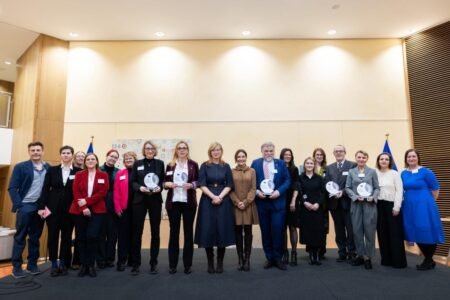The relationship between drinking and damage to one’s health is stronger in the Baltic countries and Sweden than in Italy, new research from Europe shows. The findings, published in the journal Alcoholism: Clinical & Experimental Research, suggest that the northern part of Europe tends to report higher alcohol-harm relationships because of a stronger propensity to indulge in heavy episodic drinking, what experts label ‘binge drinking’.
Past studies demonstrated a dose-response relationship between alcohol and heath issues including cirrhosis of the liver. And recent studies also found a connection between increased drinking and more problems like interpersonal violence. But the risk relationship may be altered by various factors such as pattern of drinking, attributes of social drinking contexts and drunken comportment. This latest study highlights how the shape of risk-function may be dependent on the larger cultural context of drinking.
‘Previous research on western European countries has shown that the strength of the relationship between alcohol and harm seems to be contingent on the cultural context of drinking,’ says Jonas Landberg, a researcher at the Centre for Social Research on Alcohol and Drugs at Stockholm University and sole author of the study.
‘For example, northern European countries, where drinking into intoxication is more common, tend to have more alcohol-related problems and mortality per litre of alcohol consumed than southern European countries, where drinking is more mundane and integrated into everyday life. For this study, I compared findings from the three Baltic countries – Estonia, Latvia and Lithuania – with two countries representing two distinct ideal-types of European drinking cultures: Sweden, assumed to be similar to the Baltic countries with respect to drinking culture; and Italy, assumed to be markedly different.’
Commenting on the results, Stockholm University Professor Thor Norström says: ‘There are much larger differences in the alcohol culture and drinking patterns across European countries than across US states.’ Because of these differences, researchers in Europe may feel compelled to analyse variations in alcohol cultures and how these impinge on harm, according to Professor Norström.
Using data compiled from 2 general population surveys of around 1 000 subjects from each of the 5 countries (Estonia, Italy, Latvia, Lithuania and Sweden), Dr Landberg evaluated the data for the risk of experiencing alcohol-related problems associated with self-reported volumes of alcohol consumption in each of the 5 countries.
‘My findings showed that most people who increased their consumption were at risk of experiencing some form of alcohol-related problems,’ says Dr Landberg, ‘but also that people who live in countries where drinking occasions often lead to intoxication – for example, Sweden and the Baltic countries – more often experience alcohol-related problems when they increase their alcohol consumption when compared to people who live in Italy, were the drinking primarily takes place with meals and less often leads to intoxication.’
A number of factors impact these differences. According to Dr Landberg, the primary factor is probably associated with cultural differences in drinking patterns. People residing in the northern part of Europe typically drink in a manner that intensifies their chances of suffering from alcohol-related problems compared to their southern Europe counterparts.
‘However, the results may also reflect cultural differences in how people regard alcohol and harm,’ he says. ‘For example, in a country like Sweden, where drinking is seen as problematic, alcohol often gets blamed for problems when someone has been drinking, while on the other hand, people may be less likely to blame problems on alcohol in a country like Italy, where alcohol is not regarded as problematic, but rather as a part of day-to-day life.’
For his part, Professor Norström proposes that the alcohol-harm relationships are usually stronger in northern Europe because of binge drinking.
‘To my knowledge, this is the first individual-level study to assess the risk of experiencing alcohol-related problems in relation to volume of consumption in the Baltic countries and to directly compare the results with findings from Western European countries,’ Dr Landberg points out.
‘What my findings add to the field is, primarily, that the Baltic countries may be placed alongside the countries of northern Europe in terms of how alcohol consumption may be expected to result in negative consequences. This can be viewed in the context of a “European north to south” gradient in the strength of the risk relationship, that is, strongest in the northern part of Europe such as Sweden and Finland, and gradually decreasing while moving south, such as France and Italy.’
Further information:
Alcoholism: Clinical & Experimental Research
Centre for Social Research on Alcohol and Drugs
Source: Community R&D Information Service (CORDIS)







